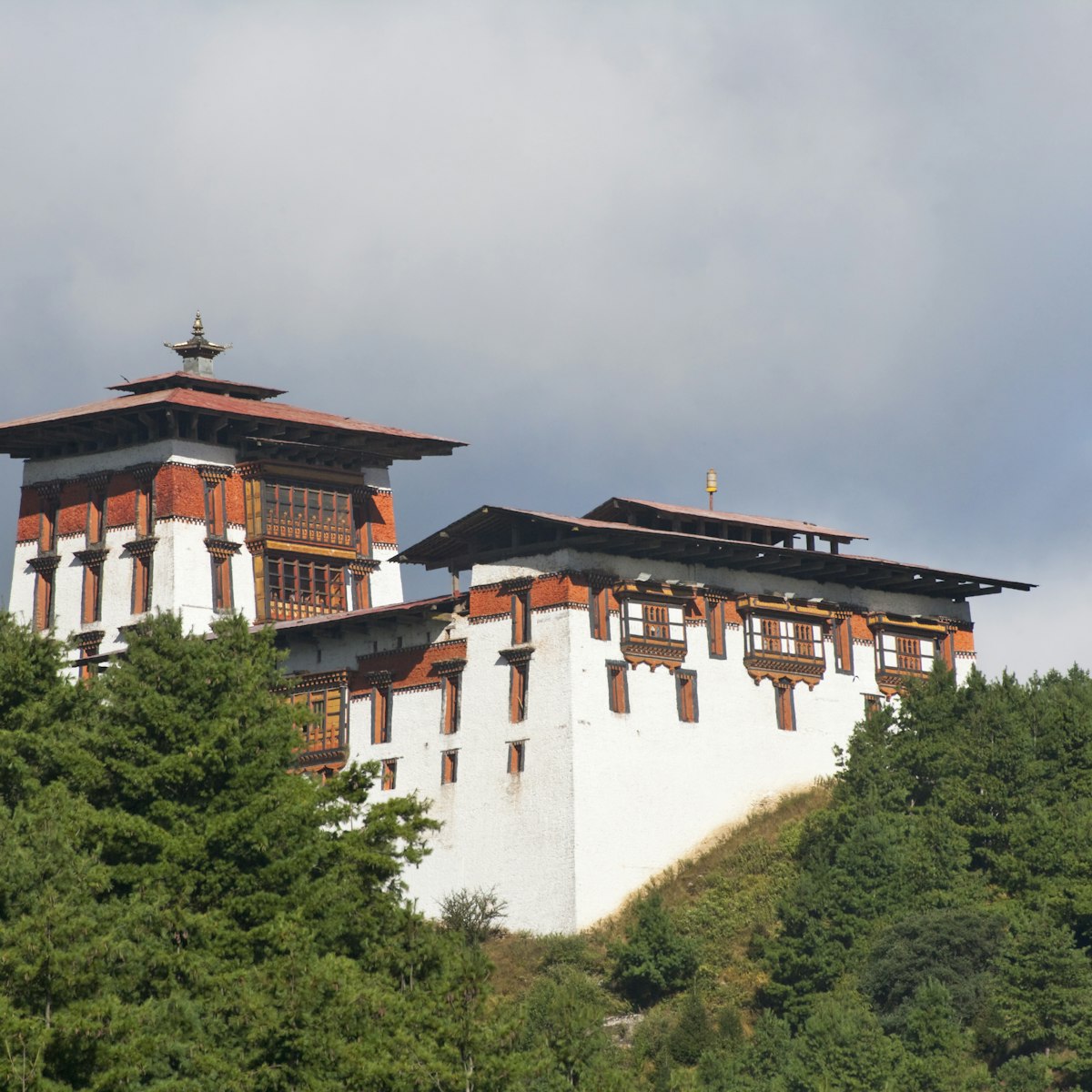The palace of Wangdichholing was built in 1857 on the battle-camp site of the penlop of Trongsa, Jigme Namgyal. It was the first palace in Bhutan that wasn't designed primarily as a fortress. The grand but rather neglected building was used as a lobra (monastic school); however, the Bhutan Foundation (www.bhutanfound.org) has started to restore it and convert it into a museum.
Namgyal's son, King Ugyen Wangchuck, the first king of Bhutan, was born in Wangdichholing and chose it as his principal residence. The entire court moved from here to Kuenga Rabten each winter in a procession that took three days. Wangdichholing was also for a time the home of the third king, before he moved the royal court to Punakha in 1952.
There are five giant water-powered prayer wheels inside square chortens just to the north. The sleek modern building next door is the upmarket resort Amankora.





